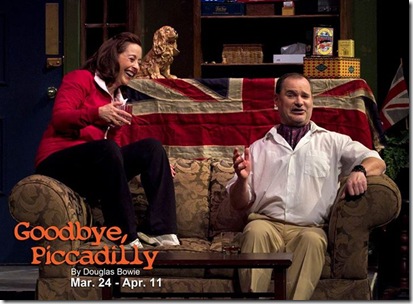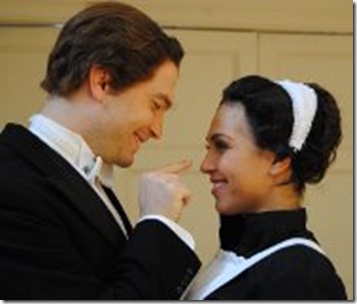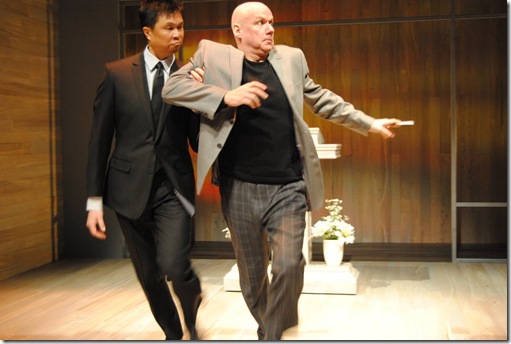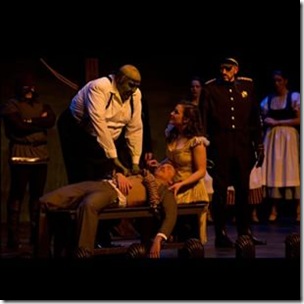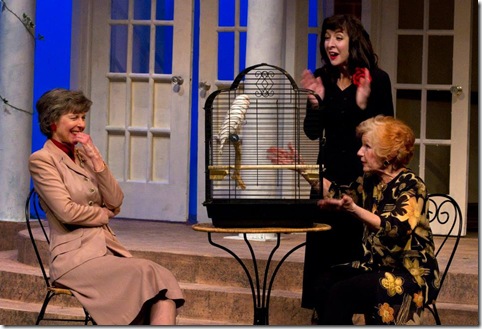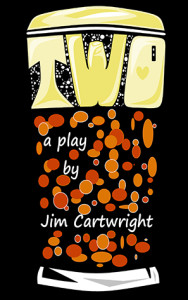OLT’S Goodbye Piccadilly Shows Genuine Heart
Photo. Maria Vartanova.
The cast of Ottawa Little Theatre’s production of Goodbye Piccadilly faces the daunting challenge of finding and maintaining a convincing dramatic line for a play that springs from a preposterous situation and seeks to blend honest pathos with moments of potentially destructive comedy.
Douglas Bowie’s play doesn’t make it easy with sequences that, in less experienced hands, could disintegrate into farce. But under the guiding hand of director Sarah Hearn, the production finds balance and nuance as the play explores the strange circumstances surrounding a beloved local citizen’s death and the upheavals it causes among his survivors.And when it comes to survivors, there are more than we first expected. We initially meet Bess Brickley, sympathetically portrayed by Janet Uren, in a state of bustling excitement over the news that husband Brick has been awarded the Order of Canada. It’s November, and Brick is supposed to be off on his annual late autumn canoe trip in Algonquin Park — but he isn’t. The euphoria Bess has been experiencing is suddenly crushed by an overseas telephone call to the Brickley family’s rural Ontario inn. It comes from London, where Brick has been found dead on a park bench in Leicester Square.
